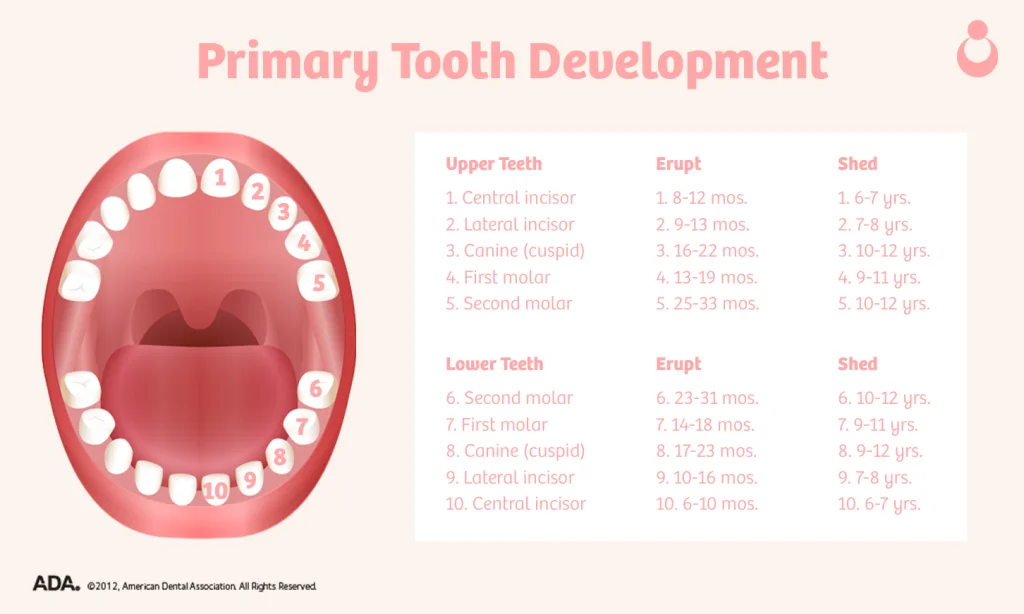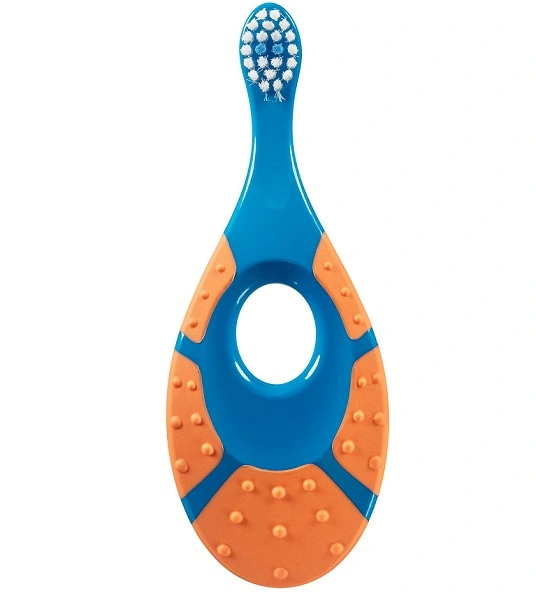All you need to know about baby teething
First experiences are always exciting, and sometimes scary. Your baby’s first teeth are no exception, and you must have many questions about baby teething, which we will answer in this article.


When do babies start teething?
Baby teething starts usually at around four to six months, and it ends by age three with the appearance of the last baby tooth. It is noteworthy that every baby is unique in development, so exactly as some babies walk at nine months and others at eighteen, some babies start teething at four months, and others at eighteen months. This large normal teething window is due to many factors, such as genetics, the baby being born preterm, being a twin/triplet, or other reasons. Preterm-born babies have some delays in some milestones like teething, walking, and talking, and it is perfectly normal.
Signs of baby teething
- Biting
Signs of teething include an increased tendency to bite. Babies going through teething, tend to bite everything, their toys, their hands, and their moms. Biting is soothing and gives them comfort.
- Drooling
A baby who is teething will have excessive saliva drooling from his mouth; bibs help a lot at this stage. This drooling might cause mild skin irritation, eczema and rashes around the baby’s mouth and chin.
- Loss of appetite
While some babies eat less while teething as they feel discomfort or soreness in their gums, others may eat normally.
- Crankiness
The baby’s mood is highly affected by teething, so it is normal to see a teething baby in a bad mood, crying often, and showing excessive irritability.
- Disturbed sleep
Many babies start sleeping through the night by this time, these long stretches of sleep might be interrupted several times a night, and the baby might wake up at random hours crying during teething.
- Decline in immunity
Babies become more prone to illness while teething. And in some cases, they might experience a low-grade fever.
The stages of baby teething
Babies will go through teething several times from age four months until their third birthday. Teeth appear in cohorts; it is like an orchestra of symptoms that are uncomfortable for the baby and his mother.
The first teeth
In general, the lower middle teeth are the first to come out. This illustration shows the order of teething in babies.

Soothing baby teething pain dos and don’ts
It is noteworthy that not all babies experience severe teething symptoms. Some of them don’t cry or wake up at night at all. While others cry and are in pain all the time.
Here are the best ways to ease teething pains
- Understanding teething
A mother must understand what her baby is going through, and not listen to unsolicited advice about her baby’s health.
- Easing the pain
If the symptoms are standing in the way of the baby’s eating and sleeping, I advise giving a small dose of baby pain medication. Or using certain numbing cream that can be applied to the baby’s gums. I advise moms to ask the dentists before using such creams, as we usually prefer the ones that are made of natural ingredients and contain healing enzymes.
- Offering cold and hard foods
Offering the baby foods that are cold and hard (veggie sticks,meats, cold fruits, natural food popsickles) will calm the pain and will help the tooth to come out. There are food pouches where moms freeze different food purees that the baby can bite to soothe the pain.
- Teething rings
I advise moms of babies to use this toothbrush that has a teething ring to help the baby bite and ease the pain.

Source jordanoralcare.com
It is very dangerous to use alcohol to calm the teething pain, as it can cause a burn at the gum/bone level.
Using a honey-soaked pacifier is also dangerous as this can lead to cavities, infections, and other health problems.
Teething is a milestone that can go smoothly if you face it with knowledge and awareness.
Find out How to calm your colicky baby






